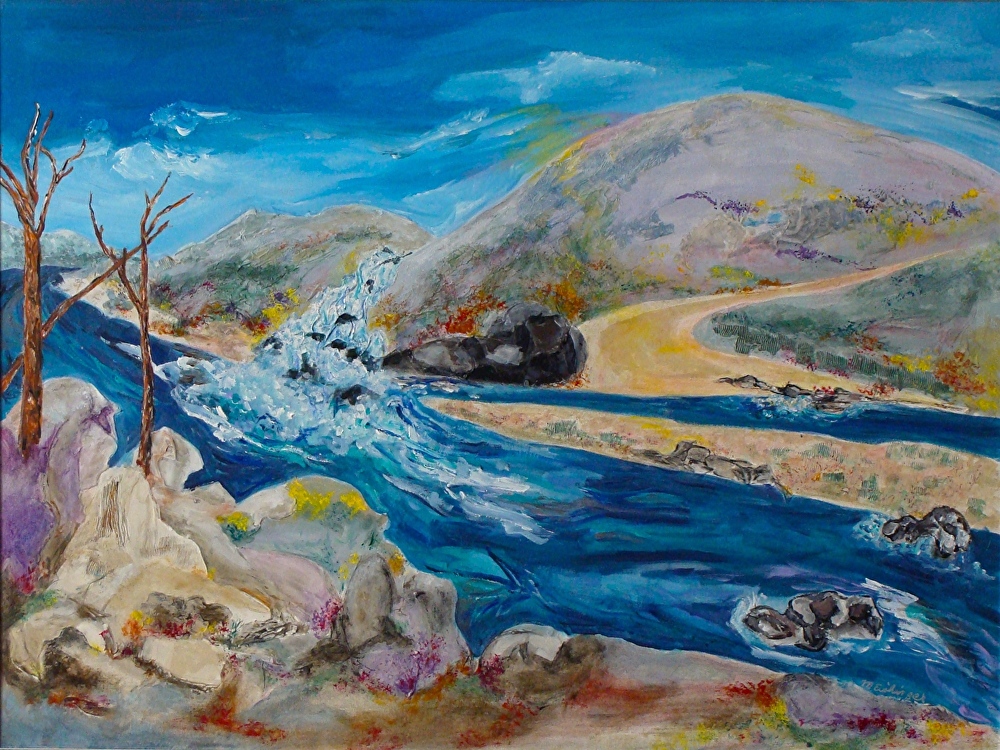
This peaceful slew is impacted by the ebb and flow of ocean tides. Coastal areas are feeling the effects of rising seas, warmer ocean temperatures, stronger storms, and altered marine ecosystems. Streams that drain the coastal range carry increased runoff resulting from greater winter rainfall. This reverses itself in the summer with decreased rainfall which effects salmon and other cold-water species. Estuaries and wetlands are especially subject to rising sea levels that bring about sediment deposition, and changes to the shoreline. Invasive species and acidification effect clams, crabs, oysters and other shellfish.
Action Over Anxiety
It’s easy to become overwhelmed paying attention to the stories of doom and gloom that circulate freely through the media. Most do represent real problems that can not be brushed aside. Talk of global warming, of war, gun violence, rape, homelessness, trade imbalances, a new arms race, affordable housing, a growing class divide, and Middle East unrest fill the airwaves.
How people process so many disturbing accounts varies, with some developing illnesses while others become activists. I am privy to numerous distraught individuals who fear getting out of bed each morning. During the day they glue themselves to daily newscasts that push them into serious depression. Most of us, however, reside great distances from where these horrific stories occur. Imagine what it would be like to live in a community where each day you watch past predictions of disaster unfurl.
Last week on NPR, a psychologist spoke about native populations living in the Arctic. She said that an escalating number of people suffer from severe anxiety depression. They are upset by what happening to their communities because of warming trends. These men and women are on the front lines, watching fragile habitats destroyed while fossil fuel reserves become more readily accessible for extraction, exacerbating the problem. To these residents, global warming is not a debate. It is a daily reality. They have a front row view of Arctic Sea ice melt and of when happens when oceans warm. They are the first responders, the canary in the mine that gives a warning all must heed.
Ice reflects sunlight, and water absorbs it. It is easy to understand that as ocean volume grows, more sunlight is absorbed which raises the temperature, warming the land and causing the weather to become more violent. In the far north, wildfires have already devastated large tracks of land. Melting permafrost topples houses, and disappearing glaciers cause riverbeds to stay dry. Fish die and wildlife lack water needed for their sustenance. Over the the past century, the seas have risen four to eight inches, depending on where you live. Arctic warming, however, in speeding up, occurring faster than originally thought. Experts currently predict the seas to rise 23 feet before the century is over. Following is a 50 year chart for the US put out by the Union of Concerned Scientists. You will see how the rise differs from coast to coast.
Look grim? It is, but that does not mean that you have to be frozen with fear. Living in a state of anxiety is not good for your health, nor does it solve problems at hand. Burying your head in the sand or saying God will solve situations brought about by humankind does not help. Troubles don’t go away unless they are tackled head on.
It is unreasonable to thing each of us can focus on every difficulty. And, it is not wise to worry about every issue brought to your attention. It is best to choose one concern that speaks to you and work towards a solution. By all means, learn as much as possible about a variety of issues, but put your vast knowledge into a worry-free box and let others take the lead. At the same time, work outside of the box. Find an issue you can get passionate about and get involved. Choose action over anxiety.
The Arcticpsychologist on NPR told listeners the same thing. We were told not to retreat from the news, but to form small discussion groups where feelings of helplessness can be challenged and you can engage in constructive self-talk to build a personal sense of resilience and optimism. She suggested focusing on what you can control and act accordingly. Making a positive difference locally does improve the mental health of those who participate. And, with thousands of people worldwide meeting in hometown groups, solutions are bound to emerge. Best of all, these good folks will have fun getting to know each other.
Action over anxiety. It worked for me by focusing efforts on youth homelessness. . I am appalled by what I see on the streets. I think about it and am continuously learning abut the subject. I adopted a homeless youth and wrote about the experience in order to help others understand street-life. I continue to work with others to end homelessness. I see progress and am fortified. Meeting people who share my concern makes me feel good. It’s been rewarding to get to know energized people and a pleasure to call them friend.
References:
Shankman, S & Horn,P. ( 2017) The Most Powerful Evidence Scientists Have of Global Warming. Inside Climate News. retrieved from https://insideclimatenews.org/news/03102017/infographic-ocean-heat-powerful-climate-change-evidence-global-warming gclid=Cj0KCQjwiILsBRCGARIsAHKQWLMtz09jHmgQO1YCLVaPnlnERLEqQNOda6-qIEqx9lZZzqtVdtz6vXIaAoi0EALw_wcB
Beltra, D. ( 2019) The Arctic and Global Warming. Greenpeace. retrieved from https://www.greenpeace.org/usa/arctic/issues/global-warming/
Pajer, Nicole (2019) How Therapists Are Dealing with Anxiety Around Global Warming. Huffpost. retrieved from https://www.huffpost.com/entry/anxiety-global-warming_l_5c69d43be4b01757c36c9e00
